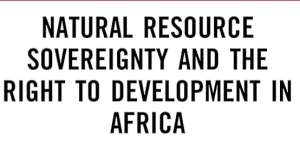
Introduction
For decades, Ghana’s mining sector has been dominated by foreign interests, extracting substantial wealth with minimal reinvestment in local development. As awareness grows, the nation is now actively pursuing nationalization to reclaim control over its mineral resources. The recent transition agreement for the Damang Mine signals a strategic shift—balancing investor participation with the broader goal of resource sovereignty.
Nationalization, however, is not simply about government ownership—it requires strategic planning, technical expertise, transparent governance, and sustainable reinvestment to avoid pitfalls that have hindered other nations. This article explores the key challenges Ghana faces in this transition and presents practical solutions to ensure a successful and equitable shift.
Challenges in the Transition
1. Balancing Investor Confidence with National Interest
Foreign investors have historically dictated Ghana’s mining operations, prioritizing profit extraction over national development. While nationalization seeks to restore balance, abrupt shifts in policy could undermine investor confidence, reducing critical technological and financial support.
🔹 Solution:
Adopt a phased transition strategy, allowing Ghana to gradually increase its ownership while securing partnerships for technical expertise. Develop profit-sharing models where ethical investors contribute to local reinvestment, rather than abrupt takeovers that might deter future collaboration.
2. Building Technical and Operational Capacity
Mining is a highly specialized industry requiring advanced engineering, geological expertise, and efficient operational management. Without sufficient local capacity, nationalization could result in inefficiencies or dependency on external expertise.
🔹 Solution:
Establish national mining training institutes, ensuring Ghanaian professionals are equipped with the skills needed to manage operations independently. Develop technology transfer agreements, allowing foreign companies to gradually train and transition expertise to Ghanaian professionals.
3. Mitigating Governance and Corruption Risks
State-controlled enterprises can become vulnerable to mismanagement, corruption, and inefficiencies, hindering Ghana’s ability to maximize resource benefits. If unchecked, nationalization could shift wealth from foreign corporations to domestic elites, leaving ordinary citizens disconnected from the benefits.
🔹 Solution:
Implement strict anti-corruption measures, including mandatory audits, citizen oversight committees, and whistleblower protections. – Enforce public accountability frameworks, ensuring transparency in nationalized mining operations.
4. Ensuring Economic Sustainability
Resource nationalization must go beyond ownership—it must drive long-term economic benefits through strategic reinvestment in infrastructure, education, and industrial growth. Without proper financial planning, nationalized resources risk instability, especially with gold market fluctuations.
🔹 Solution:
Establish a sovereign wealth fund, stabilizing mining revenues while reinvesting profits into critical economic sectors. Develop value-added industries, ensuring Ghana does not export raw materials but refines and manufactures gold-based products for higher global market returns.
Solutions for a Sustainable Transition
Phased Nationalization with Capacity Building
Rather than abrupt control shifts, Ghana should implement a gradual nationalization plan, ensuring its workforce is adequately trained to handle technical and managerial responsibilities.
Transparent Policy Frameworks
Strict governance measures are essential to prevent corruption. Ghana must develop clear, enforceable policies ensuring nationalized mining operations maintain accountability, efficiency, and ethical resource management.
Strategic Partnerships for Resource Optimization
Nationalization does not mean isolation—Ghana can forge strategic alliances with ethical investors to access advanced mining technologies and expand global market reach. Regional cooperation could also enhance stability and collaborative development.
Conclusion
Ghana is taking deliberate steps toward resource sovereignty, a pivotal move in securing its economic future. However, nationalization must be methodical, ensuring local expertise, transparent governance, and economic reinvestment. By mitigating risks, strengthening capacity, and ensuring inclusive resource management, Ghana can transform its mining sector into a driver of national progress rather than a continuation of historical exploitation.
The time for action is now—policymakers, industry experts, and stakeholders must work collectively to solidify Ghana’s path toward self-sufficiency, ensuring that its wealth serves the people first.
Retired Senior Citizen
Teshie-Nungua
[email protected]


